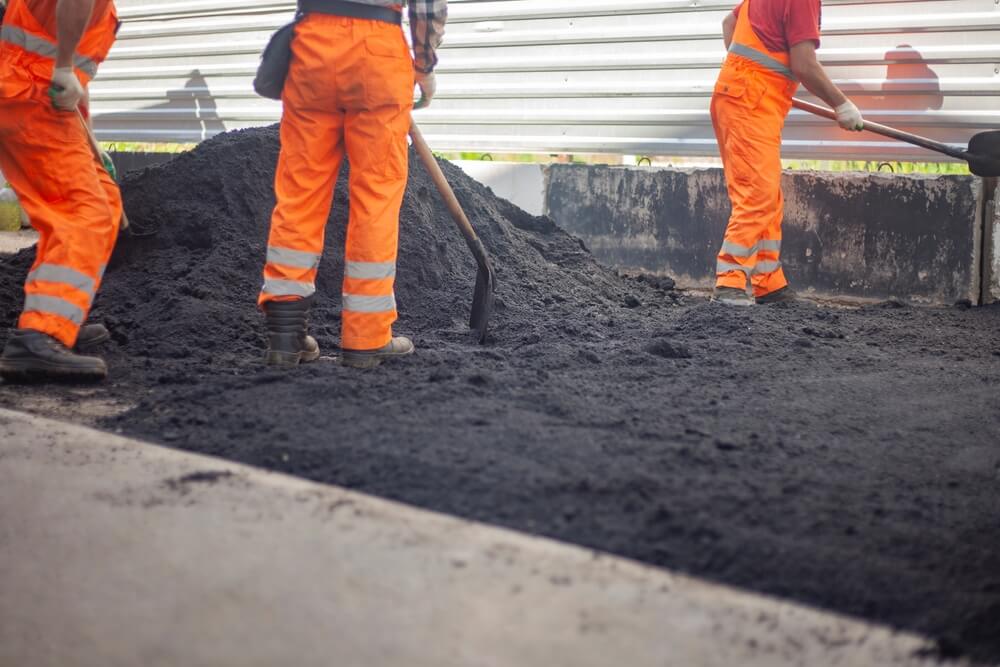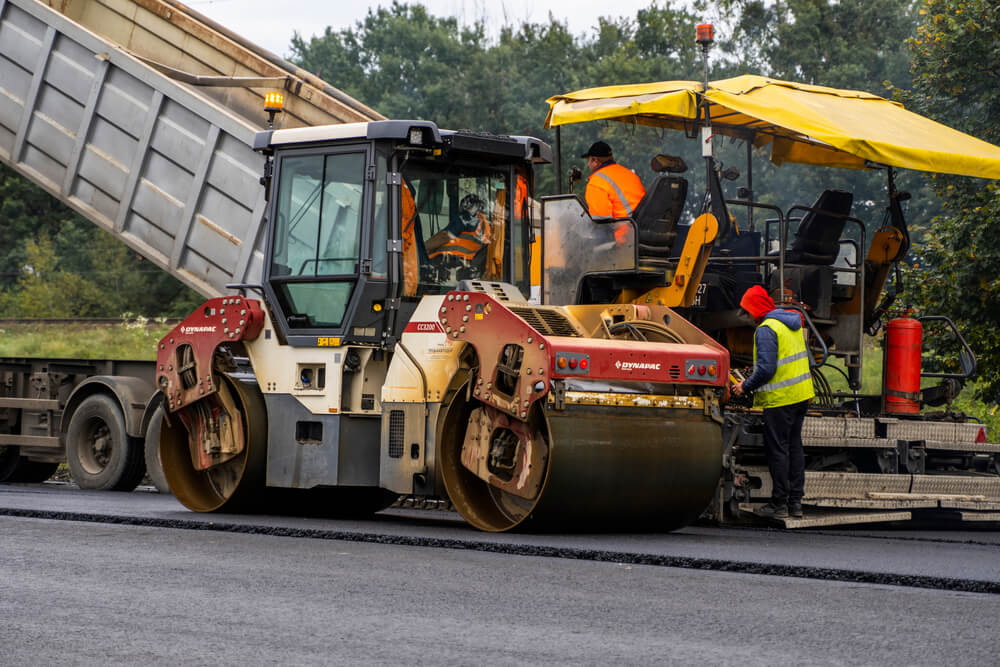Driveways, parking lots, and streets all take a beating. Wear and tear from cars and changing weather conditions make asphalt repairs a necessity. But when it’s time for contractors to fix a road or lay new asphalt, temperature and timing can impact the paving process.
If you need to hire a contractor, knowing what weather conditions are right for laying asphalt can help you avoid mishaps. Areas like the Midwest experience a wide range of seasons require extra precautions at times. Below is everything you need to know about getting your next paving project just right.
How Temperature Plays a Role

Whether there’s rain, snow, a mix, or no precipitation in the forecast, the temperature will determine whether you can put down asphalt. Say you want to repair your driveway and you’ve got contractors coming out tomorrow to fix the raised concrete and holes.
However, the air and ground temperatures are not going to get above 45 degrees during the day. Anything less than 50 degrees is too cold to lay asphalt. The air temperature must also be rising for conditions to be right.
Furthermore, the temperature of the asphalt must be between 275 and 300 degrees when it gets to the job site. If the mixture drops below 185 degrees while someone’s applying or smoothing it, that’s too cold. The contractor will need to scrap the job, start over, or make repairs.
What About Moisture?
If rain or snow is on its way or the ground is still wet from the last storm, it’s not a good time to pave or lay asphalt. When there’s too much moisture in the air or on the ground, contractors find it challenging to prepare concrete. While it may be physically possible to lay down asphalt during wet weather, the result won’t be pretty.
You’ll likely end up with uneven surfaces and lower-quality concrete mixes. Solid concrete should last for 20 years or more. When mix quality suffers, you may notice problems with spalling and cracking. The ground may also settle, leading to more cracks and uneven surfaces.
Ideally, a contractor wants dry conditions in the air and on the ground. So if you’re experiencing irrigation system problems or leaks, it’s best to wait. You’ll also want to schedule your work during Minnesota’s drier seasons and around summer and winter storms.
Complex Paving Projects
Say you want to xeriscape your yard and want to lay asphalt over areas that currently have turf. Your contractor may need to improve or modify the soil underneath your lawns. Areas with high concentrations of clay soil often experience problems with water drainage and absorption.
That’s because clay soils become hard and compacted after so much moisture gets in them. Clay soils hold onto water from irrigation and rain or snow. Soil that becomes too hard or compact will cause the grass to stop growing. It can even kill the roots and prevent them from getting enough moisture or nutrients.
Compact soils are also bad for laying asphalt. This can impact the lifespan of the concrete, causing it to deteriorate or break down faster. You can do a soil test beforehand to let your contractor know if they’ll need to modify your landscape. Usually, they’ll add sand or rock to help the soil drain the moisture it accumulates.
Should I Make Concrete Repairs or Repave?

The right time to make repairs or repave depends on your financial and non-financial needs. The severity of any problems may also impact how urgent the impending project is. For example, you could own a shopping center with a sinking parking lot.
This is a scenario that often requires an emergency response. But a few cracks or minor holes in a concrete walking path or driveway can probably wait a few weeks or months. If you’re not sure whether it’s the right time to schedule your paving project, it’s best to ask a contractor.
Our talented asphalt contractors will assess your project needs to ensure you get the best possible results.
We have experience working on driveways, garage floors, patios, commercial properties, and more. Contact us today to determine if it’s the right time to lay asphalt at your property.




